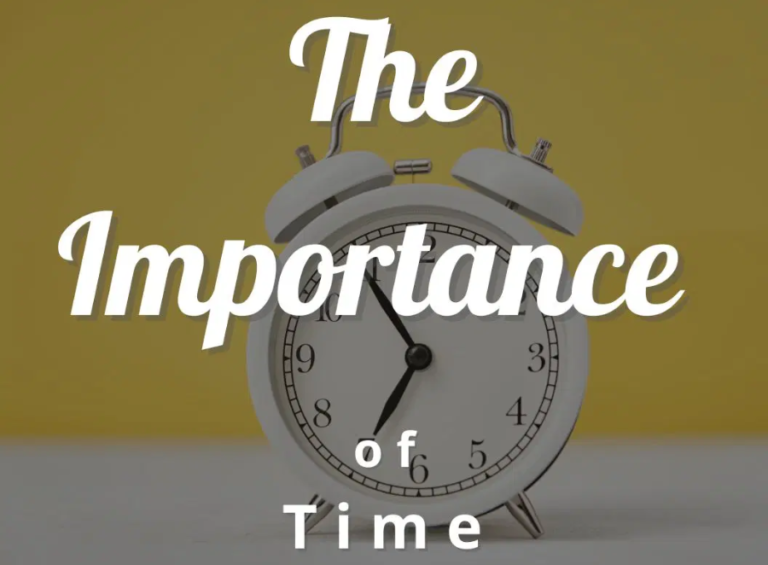In our fast-paced world, understanding iempo is essential for balancing our daily activities. This term, which is rooted in the concept of time, encompasses various dimensions of how we perceive and utilize our moments effectively. This article delves into the significance of iempo, exploring its implications in personal productivity, societal structures, and cultural perceptions.
The Concept of Iempo
Iempo refers to the way we measure and value time in our lives. It is not just about the clock ticking away seconds but encompasses our relationship with time, how we prioritize it, and how it shapes our daily experiences. Understanding iempo involves recognizing its multifaceted nature—how it influences our schedules, emotions, and overall well-being.
The Psychological Aspect of Iempo
Our perception of iempo can significantly impact our mental health. Psychological studies have shown that individuals who manage their time well report lower stress levels and higher satisfaction with life. When we feel in control of our iempo, we can allocate our time more effectively, leading to improved mental clarity and reduced anxiety.
For instance, procrastination often stems from a poor understanding of iempo. When we fail to appreciate the urgency of tasks, we may delay them, resulting in last-minute stress. By developing a keen awareness of iempo, we can cultivate better habits, enhancing our productivity and mental state.
Iempo and Productivity
In the realm of productivity, iempo plays a crucial role. Effective time management strategies can transform how we approach tasks. Techniques such as the Pomodoro Technique or time blocking can help individuals harness their iempo for maximum efficiency.
Moreover, understanding iempo helps in setting realistic goals. When we have a clear grasp of how long tasks take and how much time we can allocate, we can create achievable to-do lists, leading to a more fulfilling work experience. This structured approach not only enhances productivity but also fosters a sense of accomplishment.
Cultural Perceptions of Iempo
Different cultures perceive iempo in diverse ways, which can influence behaviors and attitudes toward time management. For example, in some Western societies, time is often viewed linearly, leading to a focus on punctuality and efficiency. In contrast, many Eastern cultures adopt a more fluid perspective on iempo, where relationships and experiences may take precedence over strict schedules.
This cultural variability highlights the importance of understanding iempo in a global context. For businesses and individuals working across cultures, recognizing these differences can enhance communication and collaboration, ultimately leading to more effective interactions.
Iempo in Modern Technology
Technology has dramatically altered our relationship with iempo. With the advent of smartphones and productivity apps, managing time has become more accessible yet more complicated. On one hand, tools like calendars and reminders can help us optimize our iempo. On the other hand, the constant barrage of notifications can lead to distractions, making it challenging to focus on tasks at hand.
To effectively navigate this digital landscape, individuals must find a balance. Setting boundaries around technology use and allocating specific times for tasks can help reclaim control over iempo, ensuring that technology serves as an aid rather than a hindrance.
Iempo and Work-Life Balance
The quest for work-life balance is a significant challenge for many in today’s society. Understanding iempo is vital for achieving this balance. When we learn to prioritize our time effectively, we can create boundaries between work and personal life.
For instance, setting specific work hours and sticking to them can help individuals avoid burnout. Moreover, understanding the value of downtime is crucial for mental rejuvenation. Recognizing that iempo is not only about productivity but also about rest and recovery can lead to a more holistic approach to time management.
Iempo and Relationships
Our relationships are deeply intertwined with iempo. The time we spend with loved ones is invaluable, yet it can be easy to overlook in our busy lives. Prioritizing quality time with family and friends can strengthen bonds and enhance emotional well-being.
Moreover, understanding how iempo affects our interactions can improve communication. When we are present in the moment, fully engaging with others, we foster deeper connections. This awareness of iempo in relationships can lead to more meaningful experiences and enhanced emotional support.
Strategies to Optimize Iempo
To make the most of our iempo, individuals can adopt several strategies:
- Set Clear Goals: Define what you want to achieve within a specific timeframe. This clarity allows for better prioritization of tasks.
- Prioritize Tasks: Use methods like the Eisenhower Matrix to distinguish between urgent and important tasks, helping you focus on what truly matters.
- Establish Routines: Developing daily routines can provide structure, making it easier to manage your iempo.
- Take Breaks: Regular breaks improve focus and productivity, allowing you to recharge and return to tasks with renewed energy.
- Reflect on Your Time Use: Regularly assess how you spend your iempo. Identify areas for improvement and adjust your strategies accordingly.
The Future of Iempo
As society evolves, our understanding of iempo will likely change. Emerging trends, such as remote work and the gig economy, are reshaping how we perceive and manage time. Flexibility in work arrangements can lead to a more personalized approach to iempo, allowing individuals to tailor their schedules to fit their lifestyles better.
Moreover, as the focus on mental health continues to grow, there is an increasing recognition of the need for balance in iempo. Businesses are beginning to adopt policies that promote work-life balance, recognizing the importance of employee well-being in overall productivity.
Conclusion
In conclusion, iempo is a vital aspect of our daily lives, influencing our productivity, mental health, relationships, and cultural perceptions. By understanding and optimizing our relationship with iempo, we can lead more fulfilling and balanced lives. As we navigate the complexities of modern life, prioritizing our iempo will be essential for achieving our goals and enhancing our well-being. Embracing effective time management strategies and fostering a healthy relationship with iempo can ultimately lead to a more satisfying and enriched existence.


